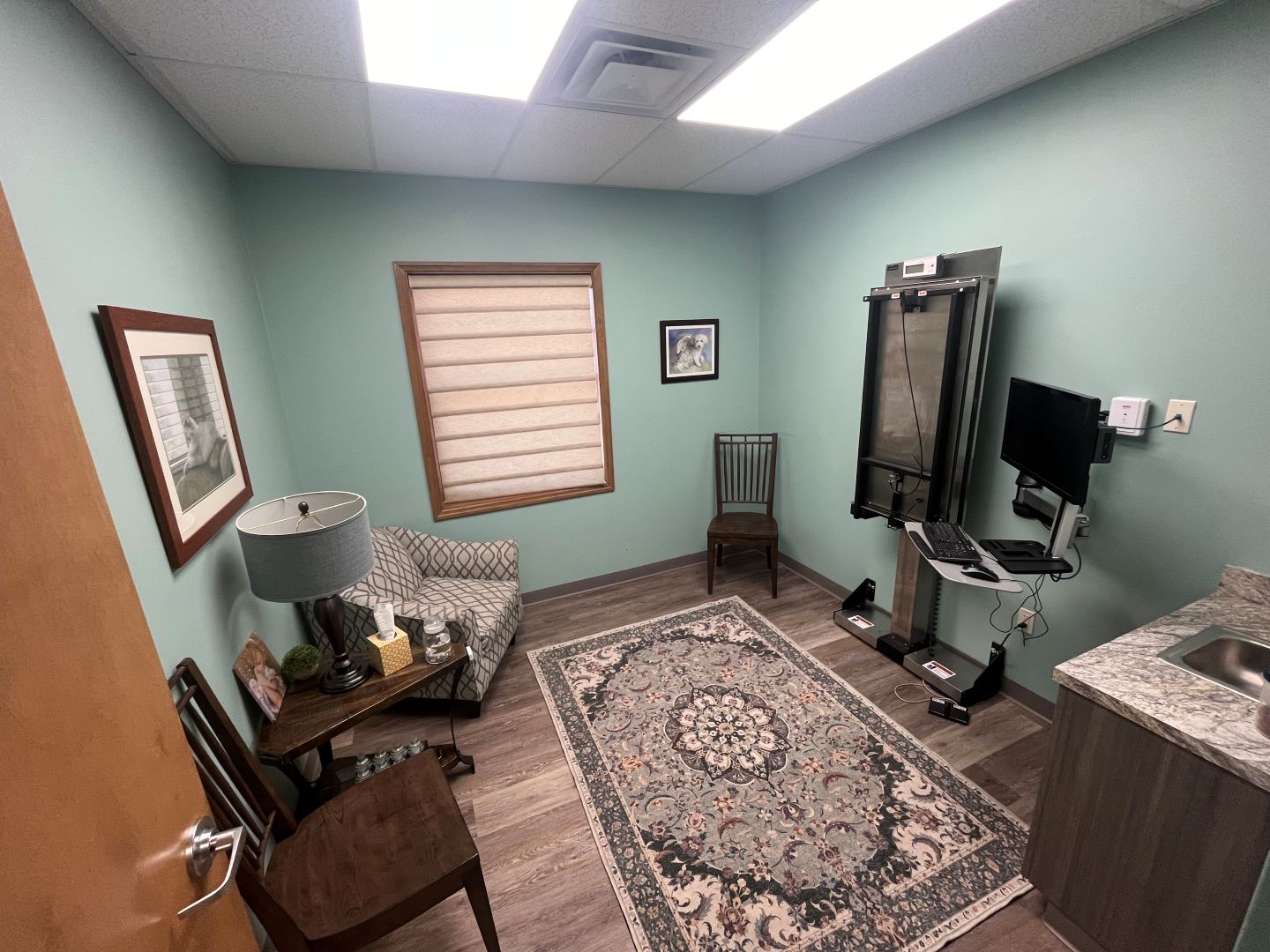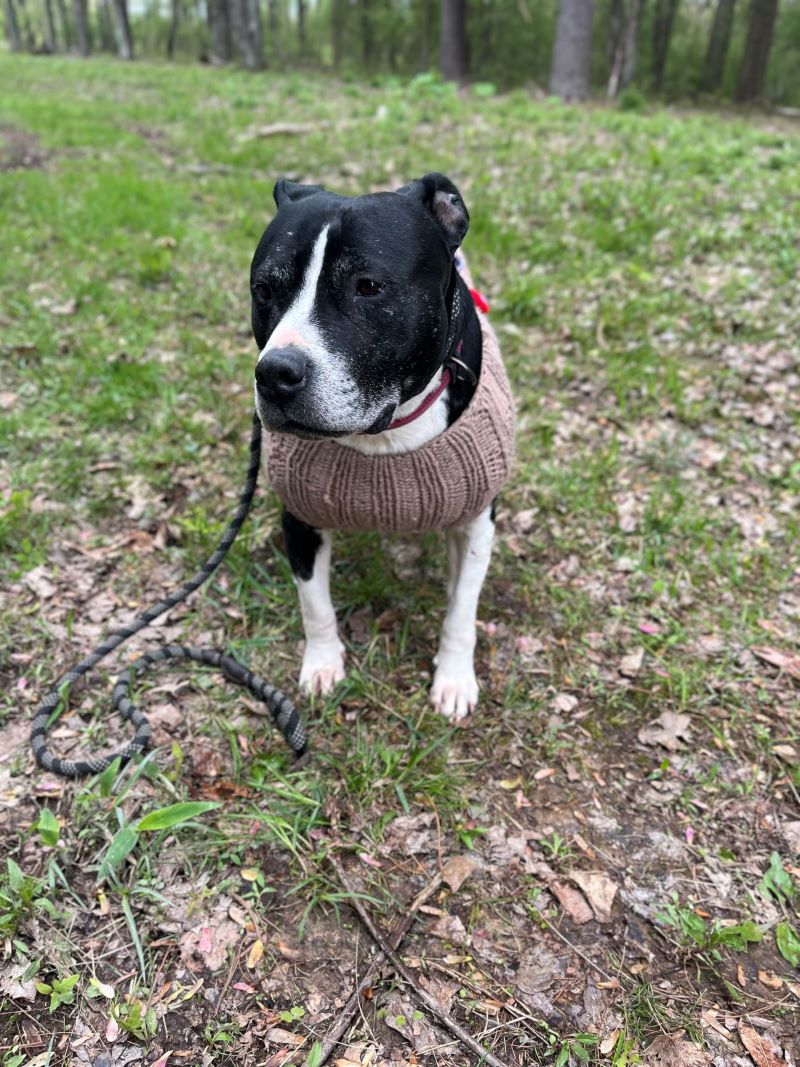Compassionate End of Life Care
At Hebron Animal Hospital, we know that every decision you make is in the best interest of your pet. For this reason, we want you to know that we support you, and that we will guide you in finding the best way to ensure your pet's well-being. We are with you every step of the way.
 ?
?
Assessing Your Pet's Quality of Life
How do you know when the time has come? The best way to answer this question is by asking yourself the following question: "Does my pet have more bad days than good days?" If the answer is yes, then euthanasia might be the best way to make your pet more comfortable. Check out this Quality of Life Scale to help asses your pet.
Celebrating Your Pet’' Final Days
Celebrating your pet's final days can be a beautiful way to honor their life and create lasting memories. Here are some meaningful ideas to consider:
- Visit their favorite park
- Enjoy a special meal
- Take a trip to the beach or lake
- Host a celebration at home
- Take a scenic drive
- Make a memory video
- Hire a professional photographer
- Plant a tree or flower
Celebrating your pet's final days is about cherishing the time you have left together. Focus on activities that bring joy to both of you, creating lasting memories and honoring the special bond you share.

Where Should Euthanasia Take Place?
Deciding where to have your pet euthanized is an important consideration. The location can significantly impact both your pet's comfort and your emotional experience. Here are some options to consider:
Veterinary Clinic
- Familiar Environment: Many pet owners choose to have euthanasia performed at their veterinarian’s office. This setting is familiar for your pet, which can help reduce anxiety.
- Professional Support: The clinic offers access to veterinary professionals who can ensure the procedure is conducted with compassion and care.
At Home
- Comfort and Peace: Some veterinarians offer at-home euthanasia services. This allows your pet to be in a familiar and loving environment, surrounded by family.
- Personalized Farewell: Being at home can provide a more personal and intimate setting for saying goodbye, allowing you to create a comforting atmosphere.
For at-home euthanasia services we recommend the following:
Pet Crossings
Lap of Love
Angel's Paws
Home with Dignity
Scheduling and Family Involvement
When it comes to the difficult decision of euthanasia, thoughtful scheduling and family involvement can provide comfort and support for both you and your pet. Choose a time that allows for a calm and unhurried experience. Avoid scheduling during busy times or when you might be rushed. Consider your pet's condition and how they are feeling on the day of the appointment. If possible, allow for flexibility in scheduling. Schedule enough time for you and your family to prepare emotionally and to say goodbye. It’s important not to feel rushed during this intimate moment.
The Euthanasia Process: What to Expect
When you arrive at the clinic, the staff will create a calm and comforting atmosphere. If it’s at home, your veterinarian will set up a quiet space. Bring along your pet’s favorite blanket or toy to help them feel more secure.
The veterinarian may perform a brief assessment of your pet’s condition to ensure that euthanasia is the best choice at that time. The vet will explain the process and answer any last-minute questions you might have.
To help your pet feel more relaxed and at ease, they will usually receive a calming medication first. This allows them to settle down comfortably before the final step. Once your pet is calm, the veterinarian will gently give them a special solution, typically through a small injection. This solution helps your pet drift off to sleep peacefully and quietly, bringing them comfort in their final moments.
You will have time to say your final goodbyes. Many pet owners find comfort in holding or petting their beloved companion during this time. Most pets pass away peacefully within moments of the injection. The veterinarian will monitor your pet to ensure they are comfortable.
Memorializing Your Pet
Losing a beloved pet is a profound experience, and finding ways to honor their memory can provide comfort and healing. Memorializing your pet can provide a sense of closure and honor the special bond you shared. Each tribute, big or small, is a way to keep their memory alive in your heart. Take the time you need to grieve, and cherish the love and joy your pet brought into your life.
Handling Your Pet’s Remains
After the loss of your beloved pet, deciding what to do with their remains can be an emotional and important choice. Here are some options and considerations to help guide you through this process:
Cremation
- Individual Cremation: Many veterinary clinics offer individual cremation services, where your pet is cremated alone, and you receive their ashes in a special urn or container. This option allows for a personal way to remember your pet.
- Communal Cremation: In this option, your pet is cremated with other animals, and the ashes are not returned. This can be a more economical choice but may not provide a personal memorial.
For cremation services we recommend: Faithful Friends Pet Memory Center
Burial
- Home Burial: If you have a yard and local regulations allow it, you may choose to bury your pet at home. This can be a meaningful way to keep them close. Consider marking the spot with a special stone or plant to create a memorial.
- Pet Cemetery: Many areas have dedicated pet cemeteries that provide a respectful place for burial. These cemeteries often offer services like grave markers and memorials.
Grief Support for Pet Owners
Losing a pet can be a profoundly emotional experience, and it’s important to acknowledge and address the grief that often accompanies this loss. Understand that grief is a natural response to losing a beloved companion. Allow yourself to feel a range of emotions, from sadness and anger to confusion and loneliness - it's perfectly normal.
Reach out to friends and family who understand the bond you shared with your pet. Talking openly about your feelings can provide comfort and validation.
Consider joining a pet loss support group, either in person or online. Connecting with others who have experienced similar losses can help you feel less alone.
If you find it difficult to cope with your grief, seeking the help of a therapist who specializes in pet loss can be beneficial. They can provide support and strategies to help you process your emotions.
There are many books and articles available that address the grief of losing a pet. Reading about others’ experiences can provide comfort and insight.
Pet Loss Resources
Children and Pet Loss
If you have children, consider involving them in the process, depending on their age and emotional readiness. This can be an important opportunity to teach empathy and the cycle of life.
Helping children cope with the loss of a pet is crucial for their emotional development. By providing a supportive environment, open communication, and opportunities to remember their pet, you can guide them through this difficult time. It’s a valuable opportunity to teach empathy, resilience, and the importance of love and connection.
Helping Other Pets Cope with Loss
Losing a beloved pet can be devastating, not just for the owners but also for other pets in the household. Animals can experience grief and loss, and it's important to support them through this challenging time.
Here are some tips for helping your remaining pets cope:
- Maintain Routine: Stick to regular feeding, walking, and play schedules. Consistency can provide comfort and stability.
- Provide Extra Attention: Spend more time with your grieving pet. Extra cuddles and playtime can help ease their anxiety and sadness.
- Monitor Behavior: Watch for changes in behavior, such as loss of appetite, lethargy, or excessive vocalization. Consult your veterinarian if you notice significant changes.
- Introduce New Activities: Engage your pet in new activities or toys to help redirect their focus and provide mental stimulation.
- Consider Companion Animals: If appropriate, think about adopting another pet when you and your existing pet are ready. A new companion can help alleviate loneliness.
- Use Calming Aids: Consider pheromone diffusers, calming collars, or natural supplements that can help reduce anxiety.
- Share Memories: Talk to your pets about the good times you shared with the lost companion. They may not understand the words, but your tone and presence can be comforting. This can help you grief as well.
Helping your pets cope with the loss of a companion takes patience and understanding. By providing love, support, and routine, you can help them heal in their own time. Remember, you’re not alone in this journey, and there are resources available to help you and your pets through the grieving process.
